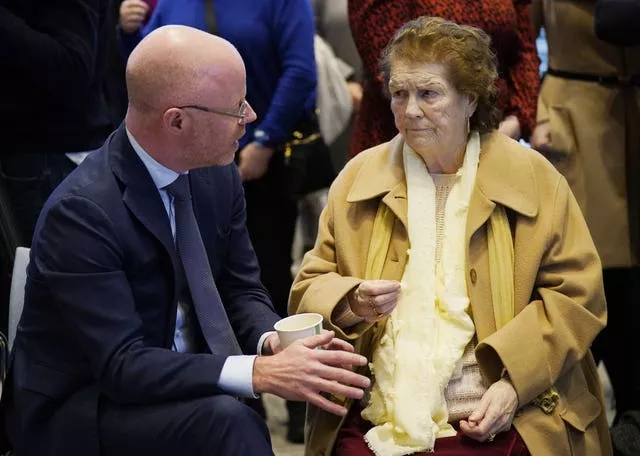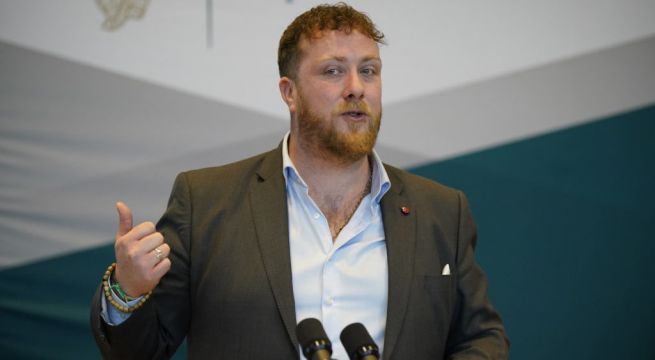A plan to tackle health inequalities in the Traveller community is a “big step forward” but will take a lot of hard work, a campaigner has said.
The National Traveller Health Action Plan (NTHAP) set out the steps that will be taken over the next five years to end the health and social inequalities in the community.
Figures show there is a gap of some 13 years in life expectancy between Travellers and the general population.
Out of 60,000 Travellers in Ireland, there are only eight over the age of 85.

The plan includes four goals to improve healthcare.
Mary Brigid Collins, assistant coordinator at the Pavee Point Primary Healthcare Project, described the launch of the plan as a “very good day”.
“I think it is a way forward, it is a step and it’s a very big step. It will take a lot of work and it will take a lot of working in different (government) departments,” she said at the launch on Monday.
“Government departments all have a responsibility but also the Travellers as well. We need to see the change within the future.
“We need to see change as part of this plan and we need to see it very soon for our children and grandchildren.
“We do marry very young. We have children, we have grandchildren and it is for the next generation. We have a very young population coming up and if things don’t change they will not live as long as the general population.
“There’s huge health inequalities in the community.”
Today the Ministers for Health, Public Health and Wellbeing and the National Drugs Strategy, and Children, Equality, Disability, Integration and Youth, and the HSE launch the first National Traveller Health Action Plan.
Download the full report here: https://t.co/AaBYMtfu9U pic.twitter.com/SlaycqHflh— HSE Social Inclusion (@HSE_SI) November 28, 2022
Traveller comedian Martin Beanz Warde said he is beginning to see “real change” within his community around healthcare.
“I want to talk about the fact that I, along with every other Traveller across the country, has been affected by suicide. And that’s the reality,” he said.
“We are six times more likely to take our own lives. That’s a reality. What’s also a reality is that we have allies outside of our community.
“For one of the first times in my life I’ve seen actual change within the Government.
“I’ve seen real change and not just within the department.
“I stand here on the shoulders of the giants of the people who put the work in.
“I feel almost like a fraud taking this space and talking about the hard work that’s been done to bring us to this point, but I will be one of the recipients of the hard work.”

Martina Queally, chief officer of HSE Community Healthcare East and chairwoman of the National Traveller Action Plan steering group, said there are some 61,000 Travellers in Ireland.
“That number would fit comfortably into Croke Park and I don’t think it is beyond us to actually ensure the health of that population improves,” she added.
For a Traveller infant, mortality is 3.5 times higher than the average in the general population.
“For men and women, their mortality rates are poorer,” Ms Queally added.
“When we look at why this is, we know from the study, that there are very clear reasons why this is this the case.
“The social determinants refer to things like your environment, your living conditions, your income, your education, and for all of these social determinants, the Traveller experience is poorer.
Minister @rodericogorman gives his backing and support to implementing the National Traveller Health Action Plan and commitments to improving Traveller mental health #TravellerHealth pic.twitter.com/Aiw4UErmyf
— Pavee Point (@PaveePoint) November 28, 2022
“They have lower educational attainment, poorer housing, poorer infrastructure and there is a lack of awareness around their cultural identity and their specific needs.”
Minister for Health Stephen Donnelly said that the state has not listened to the Traveller community for too long when it comes to healthcare and social care.
“We’re here to acknowledge that and to say that we are starting a new relationship,” Mr Donnelly said.
“A relationship where we listen, a relationship where the Government listens, a relationship where officials in the Department of Health listen, a relationship in which the HSE and our frontline healthcare workers listen and provide the services that are needed.
“For too long, the Travelling community’s voice has not been heard in terms of decision-making when it comes to policy.
“One of the things that was important to me about this strategy was that we started where we should have started many years ago, many decades ago, which was listening to the community and asking the community, what do you need?
“This plan, quite rightly comes from that space.”
Frank Feighan, Minister for State at the Department of Health with responsibility for Public Health, Well Being and the National Drugs Strategy, said that the Traveller community continues to experience severe health inequalities.
“To achieve equity, we have to bring Traveller health to the same standard as for the population,” he added.
“The action plan sets out to improve the health experiences and outcomes for Travellers by departments, the HSE and healthcare providers working together with most importantly, Traveller healthcare projects and organisations.
“This partnership approach is a cornerstone of the development of the action plan and its implementation.”
Minister for Children Roderic O’Gorman said: “There are 42 health-related actions, but the reality is that the struggle to achieve real improvements and better outcomes for Travellers in terms of health, that struggle absolutely remains.
“Following years of marginalisation and poor living conditions, the Traveller community continues to experience higher levels of health inequality.”







